Are young men and women coming apart, ideologically? As chronicled by John Burn-Murdoch, young women are increasingly likely to identify as ‘progressives’ and vote for leftists, while young men remain more conservative. Why is this happening now, and only in some countries? What explains this global heterogeneity?
I suggest,
Men and women tend to think alike in societies where there is
Close-knit interdependence, religosity and authoritarianism, or
Common culture and mixed gendered offline socialising.
Gendered ideological polarisation appears encouraged by:
Rising singles and solitude
Online echo chambers
Cultural entrepreneurs.
1) What suppresses a gender divide?
a) Close-knit, religious communities encourage conformity
Everyone seeks status and social inclusion within their communities. In poorer villages, people usually emulate their neighbours and religious authorities. Economic precarity motivates tight conformity - so as to maintain trust, rapport and vital connections. Culturally, everyone consumes similar media and tends to think alike - whether this is by radio or television.
If children learn to prioritise close-knit kin, attend religious sermons, and hear similar stories, then they tend to think alike. Deviance is sternly punished, since people either believe it is morally improper or risks social censure. Let me illustrate with examples from Morocco, India, Turkey and Canada.

Morocco
During Ramadan, my friend and I were shopping for iftar (the feast eaten after sunset). Walking through the crowded medina, all the dates looked the same. I wondered why we were trekking so far? Layla explained,
“We buy from our cousin, because they’re trustworthy”.
Strong family bonds were crucial, especially when her father had struggled economically. But they also created restrictions. Layla confided in me that she had previously loved women, but cut off contact because “It’s against the religion”. When she started dressing like a tomboy, her father was furious. In socially conservative Fes, there are strong penalties for being openly gay. Only when she migrated alone for work in Dubai could she finally embrace her desires. On Instagram, she posts butch selfies. Another friend (Salma) was part of a secret atheist group on Facebook, and drank water on our hike to Borj Sud during Ramadan, but this was all done covertly. Both women publicly conformed for fear of social disapproval, enforced by their parents.
India
Thanks to economic growth, millions of Indian women have become educated, curious, and proud of their achievements. But their aspirations are often curtailed. India is caught in what I call “The Patrilocal Trap”. Since caste networks are paramount and ostracism is enormously costly, daughters are socialised to marry, please their in-laws and stay put.
Privately, many Indian women desperately seek a loving, respectful husband like Shah Rukh Khan. Shrayana Bhattacharya explains this brilliantly,
“Most of us are expected to couple up early. So you smile and suffer through the mounting indignities.. A man with multiple failed businesses laughs at his date’s successful ventures. Dating in Delhi feels like an incessant confrontation with one’s worst insecurities”.
One Indian woman is quoted as saying,
“Maryada means self-discipline.. never express desire, never buy things for yourself”.
Shah Rukh Khan is enormously popular, argues Bhattacharya, because he embodies a masculinity that many Indian women desire, yet struggle to find. As women remark,
“We’d never seen a man talk to women with such respect and love (izzat aur pyaar se), never seen a man pay this kind of attention (dhyaan) to a woman”
“In real life, there is no Shah Rukh. All men are like Salman. Women have to fight with tradition and have to accept losing the fight”.
Just like Morocco, close-knit kinship and social policing reinforce conformity, preventing women from bucking out.
Turkey
In Konya, I spent a week with a very pious family. Her father had a splendid library of religious books and she was veiled. Together, we interviewed their imam and the leading Sufi Sheikh. Everyone was reading the same Quran, respecting the same scholars. There was no debate over scripture, nor difference of opinion.
One day, we went to lunch gathering. Zehra had recently married into the family and was now spending everyday with her mother-in-law. She had no independent work or social life; she spent all day with housewives in their 50s. Three months into marriage, Zehra was bored and unhappy. But she wasn’t resisting. That was life.
Close-knit, interdependent, religious communities foster conformity
If everyone relies heavily on reciprocity, ostracism is extremely costly, and no one wants to seem weird. Families socialise their children to respect their elders and put family first. Children internalise the responsibility to preserve their family’s reputation. Authoritarianism exerts further force, crushing any spirit of resistance (as I saw in Uzbekistan).
Religiosity matters too. If everyone fears Hell and defers to imams, there’s little dissent. And if close-knit communities all appear deeply religious, sacrosanct teachings may go unquestioned. Social media won’t necessarily make women ‘woke’. Back in Toronto, I had lunch with a brilliant 26 year old, veiled Pakistani immigrant. Happily married and living with her in-laws, she detailed how her step-sisters are closely policed. Brothers call them up to check their whereabouts and ask for video verification. Her female friends have often been pressured to marry men from Pakistan (sometimes their cousins). Men’s honour still depends on female propriety. Despite these strictures, there’s little feminist resistance on Canadian Pakistani Tiktok.
Close-knit interdependence, religosity and authoritarianism are not the only forces that breed ideological conformity. In the West, I’d credit uniform cultural production and mixed gendered socialising.
Back When I was a Girl
My teenage years were quite typical for a middle-class Western Millennial (born in 1986).
I grew up in a town in the Kentish countryside. We didn’t have smart phones, online games, or personal entertainment. Our TV had four channels. After 6pm, it was a choice of BBC News or the Simpsons. The whole family read the same newspaper. There was little prospect of polarisation.
My social circle comprised both male and female friends. Over the holidays, they came to play Nintendo. Mario Kart was a non-networked game - much more enjoyable with friends. Cross-legged on the carpet, we raced as Toad, Diddy Kong and Peach Princess. When we were too young for pubs, I hosted ‘garage parties’. I swept the concrete floor, arranged the the white plastic chairs, then others shared beers and cigarettes. Never classy, but always great fun!
In the early 2000s, Sony, Microsoft and Nintendo brought out online games, but they were rather expensive. Instead, my school pals studied and socialised together - all in the same echo chamber, with no gender divide.
As you can see, the available personal entertainment was pretty ‘basic’. Invitations to my garage were hardly enthralling, but the technological competition was weak. So I people always came over!
Mixed friendships cultivate empathy
Everyone has their own personal struggles. Unaware of another person’s trials and tribulations, we may think they have it ‘easier’. Through my research, I’ve learnt how empathy can be fostered by mixed gender friendships.
In Catalonia today, feminism is a common topic of conversation. Young women are publicly criticising inequalities; some are also educating their male friends. Santiago (who’s just finished school) shared examples of his friends resisting machismo.
After being jilted, one guy said women are whores (puta). She replied “No, a woman may decide who they wish to go out with”.
Groups of guys can get rowdy, especially when drinking and watching football. Santiago’s female friends complained, they wanted to leave. He learnt that aggression made them uncomfortable and thereafter he became more sensitive.
Kissing on the cheek is a traditional Spanish greeting. But Santiago’s female friends find this too intrusive. They prefer to shake hands with strangers. By speaking out and supporting each other, young Catalonians are creating a public sphere in which women feel more comfortable.
Seeing their discomfort and defiance, keen to preserve their friendship, Santiago listens and learns. He actually feels more comfortable with women, they don’t pressure him to be macho.
This is entirely consistent with a large volume of research corroborating Gordon Allport’s ‘contact hypothesis’. When people collaborate in joint projects, they tend to forge solidaristic ties and reject discrimination.
In sum, the gender divide can be suppressed by two forces:
Close-knit interdependence, social policing, religosity and authoritarianism
Shared cultural production, as well as offline friendships.
What Fosters a Gender Divide?
Gendered ideological polarisation may be encouraged by:
The rise of singles and solitude
Social media filter bubbles
Cultural entrepreneurs
Backlash
Below, I discuss South Korea and China, then North America and Europe.
South Korea
South Korea has always been extremely patriarchal, but now hostile sexism has been turbo-charged by 3 major factors:
Dating frustrations
Feminist activism
Social media echo chambers
Suppose you’re a 30 year old guy in South Korea. At work, women are servile underlings, expected to pour the tea and act like secretaries. As long as Korean men continue to dominate management and socialise with other men, they are immersed in cultures of self-righteous sexism.
Romantically, however, women won’t give you a chance. Dating is a nightmare - given male-heavy sex ratios and your middling paycheque. It’s a recipe for frustration. Rationally, you could invest in self-improvement, hit the gym and try to be more charming. But there’s also a supportive fraternal community saying something along the lines of,
“It’s not your fault. Women are greedy, grasping, hypergamous kimchi bitches. They have a vastly easier time - exempt from conscription, with no pressure to provide for their families, they can easily marry rich. Now look at this video I took of a rag [whore] undressing in a public loo. She’s called Hwa Young, employed at Hyundai”.
“Great footage, brother! HAHAHA”.
That’s not a direct quote. I’m paraphrasing the Korean manosphere (based on my interviews and Hawon Jung’s excellent book).
The rise of smart phones means that frustrated men can forge misogynist online networks, propagating hateful narratives and sharing misogynist pornography, revelling in their capacity to humiliate and degrade. 80% of men in their twenties believe there is serious gender discrimination against men.
South Korean women, meanwhile, are increasingly single and feminist. Inspired and emboldened, they have shared stories of abuse and publicly supported each other. Together, they chorus “Not your fault”. This attack has only exacerbated patriarchal backlash.
China
China’s rapid economic growth, urbanisation, university enrolment and rise of salaried employment has spawned cultural liberalism. By migrating for study and work, young adults have become far more independent and free to form their own friendships. Gathering together, women make friends, bemoan unfairness, and discover more egalitarian alternatives. Emboldened by peers and feminist media, they come to expect and demand better.
Chinese men typically hang out with other men. Few have sisters - given ultra low fertility. So they do not necessarily learn about women’s concerns and frustrations. Social media is also rather sex-segregated. Baidu Tieba is mostly male, while Little Red Book skews female. Separately, they manufacture diverse perceptions. Patriarchal entitlements are cheered by all the men in the room. If a culturally homogenous group applauds a singular perspective, it appears entirely legitimate.
What might disrupt group think?
Caring relationships help build bridges - as Cheng explained to me:
“I used to be like one of those guys on the app [Baidu Tieba]. I sent the jokes to my girlfriend - calling fat girls names of tanks”. She said, ‘I’m uncomfortable with what you’re saying’… A girl was dating with many men, I called her a bitch, my girlfriend was very angry. I was unaware, there are very serious issues”.
Jing helped Cheng become more empathetic by sharing her feminist perspective. Concerned for her good opinion, he listened. Social media clearly does not inhibit empathetic mixed gendered friendships. But those immersed in homophilic filter bubbles may get trapped in ideological polarisation.
What’s Driving the West’s Gendered Ideological Polarisation?
In the West, young women have become much more progressive, while young men remain more conservative.
This may reflect:
Online echo chambers - in literature, social media and entertainment
Cultural entrepreneurs
Backlash
The rise of singles and solitude
In brief, online connectivity enables individuals to forge tribes with ideological allies across the world, while paradoxically spending more time in solitude. This technological leapfrogging, combined with declining face-to-face interaction, may weaken cross-gender empathy. Some progressive campaigns may also have triggered backlash.
Feminising Echo Chambers
In the late 20th century, a female echo chamber was already emerging. As Western women forged careers as journalists, authors, script writers and publishers, they told their own stories, propagating their own ambitions and desires - reaffirming equality. As early as 1997, most of the editorial and sales executives at Time Warner were women. By 2000, women held 50% of US book copyrights. By 2020, they authored the majority of new books. Their readers were often female. Female publishing and readership plausibly encouraged a feminised ideology.

Online Echo Chambers
Twenty years ago, the whole family might watch the same television show or share the newspaper. Now, any teen with a smart phone can binge their favourite shows, browse social media or listen to podcasts. Online personal entertainment provides a million options, catering to niche preferences.
As people gravitate to like-minded communities, they are surrounded by similar perspectives, affirming their own righteousness. Algorithms elevate sensational and feed people stories that appeals to their priors. It’s not just the fault of ‘Big Tech’: confirmation bias is powerful and inclines each of us to seek out the news we like.
Cocooned in ideological ecosystems of like-minded others, we become immersed in ‘filter bubbles’. As individuals seek status and inclusion within their networks, they pay close attention to what is widely esteemed and learn to quietly conform. Claims may become accepted wisdom, seldom challenged with demands for substantiation. Networks of group perpetuate righteous resistance.
For progressive women, filter bubbles may be reinforcing beliefs that the world is deeply unfair. David Rozado shows that after 2015 news media increasingly reported on gender and racial bias. It’s precisely this period when young women came of age.
Cultural Leapfrogging
Digital platforms have weakened the controls of traditional cultural gatekeepers. Armed with smartphones, women from Mexico to Malaysia are raising their expectations through exposure to more feminist media. Netflix shows like ‘Emily in Paris’ showcase female autonomy, while Miley Cyrus tops Saudi Arabian streaming charts.
As an Egyptian mother, Dalia, observed:
“If I say to my daughter, let’s watch a movie, she’s doing something totally different, she’s on her phone”.
Virginia Woolf famously championed ‘a room of her own’: today’s women claim their own digital headspace. I call this “cultural leapfrogging”.
Conservative Backlash
The digital revolution that enabled cultural leapfrogging also empowers resistance. While progressive ideas gained influence within Western institutions, a parallel ecosystem emerged online: independent content creators, especially podcast bros, building massive audiences.
What makes these digital spaces particularly powerful is their complete independence from establishment controls. As Nick Hilton, a podcast production company co-founder, observes:
“These people own their company, it’s in private hands, none of them have boards or shareholders… Predominantly young men with broadly libertarian, right-leaning views, are now in control of some of the most mainstream media platforms, with basically no internal or external oversight.”
This created a critical vulnerability in progressive advocacy: even as movements successfully pushed for institutional reforms, they could not monopolise the broader conversation. Independent creators, operating outside institutional constraints, found fertile ground for dissent. My interviews with men in San Francisco, Boston, New York, Barcelona, and London revealed growing resentment.
This backlash reflects tribal psychology: when advocacy appears to privilege certain groups while challenging others' core values, it often generates resistance. Imagine if media constantly celebrated redheads. It would certainly make me feel nice, but alienate everyone else.
Survey data confirms this widening divide: over the past decade, strong Democrats leaped leftward, while median US voter attitudes toward affirmative action and immigration remained largely static. The growing chasm between institutional progressivism and conservative backlash may help explain Trump’s win.
My research reveals three core mechanisms that trigger and amplify backlash.
First, when progressive activism is perceived as assaulting core values by pushing beyond what median citizens consider acceptable, it can trigger organised resistance - like an elastic band snapping back. We see this in South Korea, where feminist activism has sparked intense counter-mobilisation.
Second, exclusionary tribalism can deepen divisions. When feminist movements frame their advocacy in ways that exclude or antagonise others, it breeds resentment and defensive mobilisation. This helps explain why some men retreat into online spaces that affirm traditional masculinity when they feel attacked or excluded by feminist discourse.
Third, status threats play a crucial role. When men perceive challenges to their social position - whether through economic changes that reduce their relative status as breadwinners or through cultural shifts that question traditional male authority - they often react with increased hostility toward gender equality. This is particularly visible in contexts where male status has traditionally been tied to patriarchal hierarchies.
Cultural Entrepreneurs
Backlash isn’t automatic; charismatic entrepreneurs can capitalise on new technologies by building echo chambers that construct the legitimate targets for animosity, shaming and vilification.
Andrew Tate gained notoriety on social media for espousing sexism. A third of young British men now rate him favourably. As a multi-millionaire businessman - partying with attractive women in private jets and super yachts - he embodies many men’s idea of success. His wealth, confidence and charisma all aid ideological persuasion.
But he’s not just an exogenous shock, single-handedly brainwashing innocent young men. Rather, he’s surfing a wave of frustration, turbo-charged by corporate algorithms that fire-up sensationalist content for clicks.
The Rise of Solitude and Singles
Across rich countries, people are increasingly more time alone. This may be related to massive advances in hyper-engaging online entertainment, as well as broader conveniences and work.
Why venture out when everything – from Deliveroo to Netflix to Zoom meetings – arrives at our doorstep? Smartphones deliver endless streams of stimulation sometimes eclipsing the appeal of face-to-face connection. Between 2010 and 2023, US young adults spent 4 times more hours gaming.
In many communities, people are spending less time with family, friends, work colleagues and romantic partners. In the U.S., over half of 18 to 34 year olds are neither in a steady relationships nor living with a partner. Most single people don’t even feel much pressure to find a partner. Half say they are not even looking.
Socialising is also down. Young people are spending much more time alone. 65% of young American men say “no one knows me well”.
Men and women thus increasingly inhabit separate social worlds. As we spend less time with the opposite sex, we do not necessarily learn from their concerns or empathise with their perspectives. By blinkering ourselves to disagreement, we may become more confident in our priors. This breeds divergence.
TLDR
Close-knit, religious and authoritarian societies breed cultural conformity, since everyone is socially policed.
Older men and women in the West also tend to think alike, though for different reasons. They came of age at a time of common culture (e.g. the Simpsons) and mixed gendered socialising.
But now - in economically developed and culturally liberal societies - young men and women seem to be growing apart. Evidence points to the rise of singles, solitude, and online echo chambers. Cultural entrepreneurs have championed righteous resentment, channelling frustrations. Meanwhile, many young women are immersed in filter bubbles that emphasise inequalities.
Failure to address this gap may impede heterosexual love, friendships and family formation.













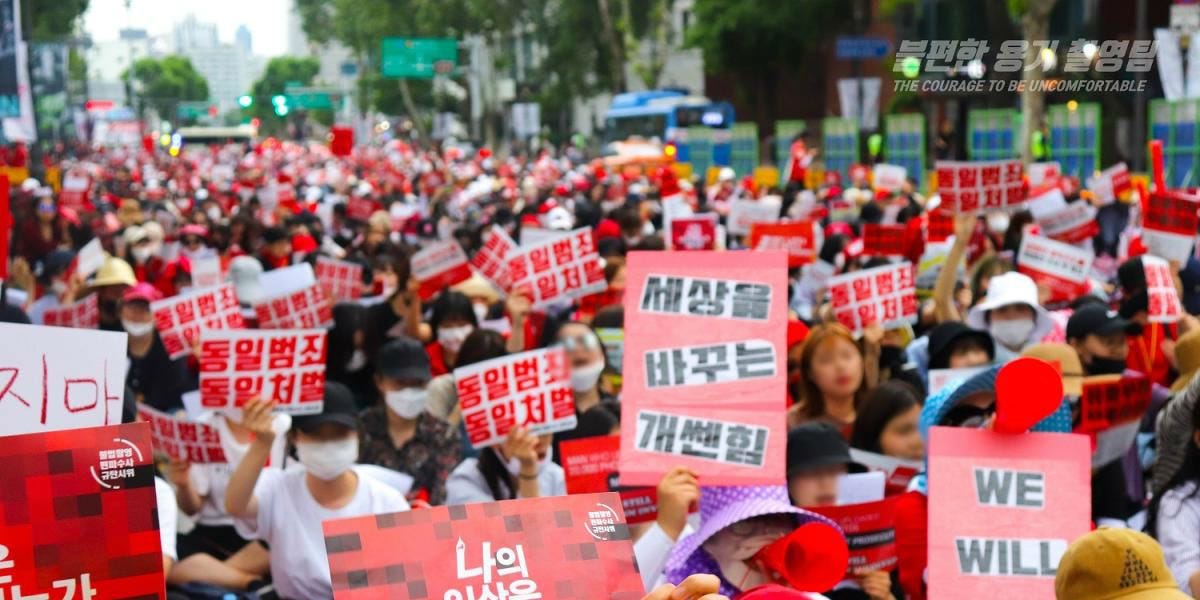



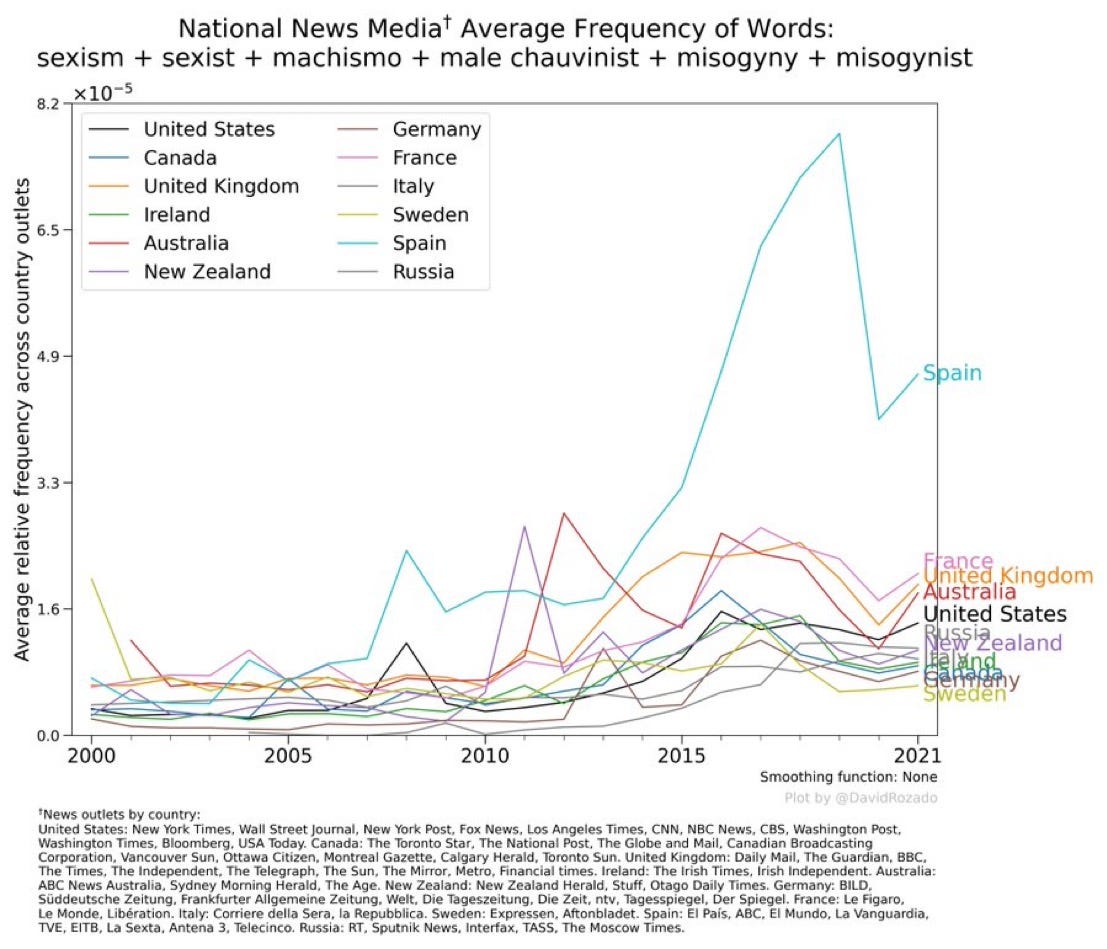
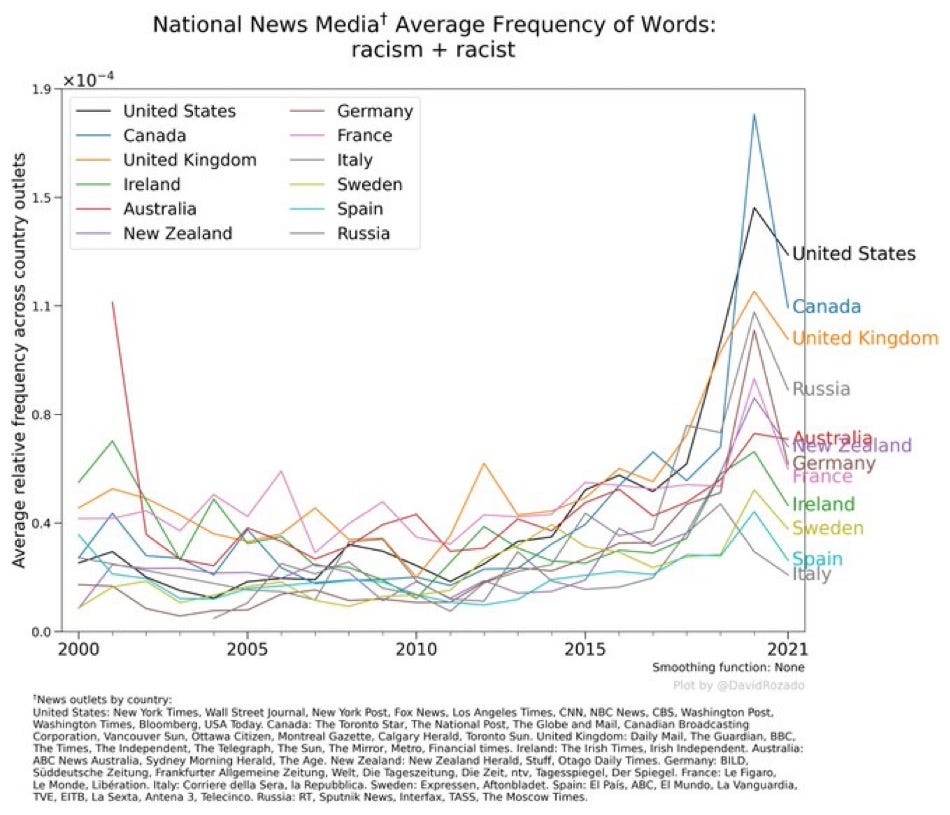



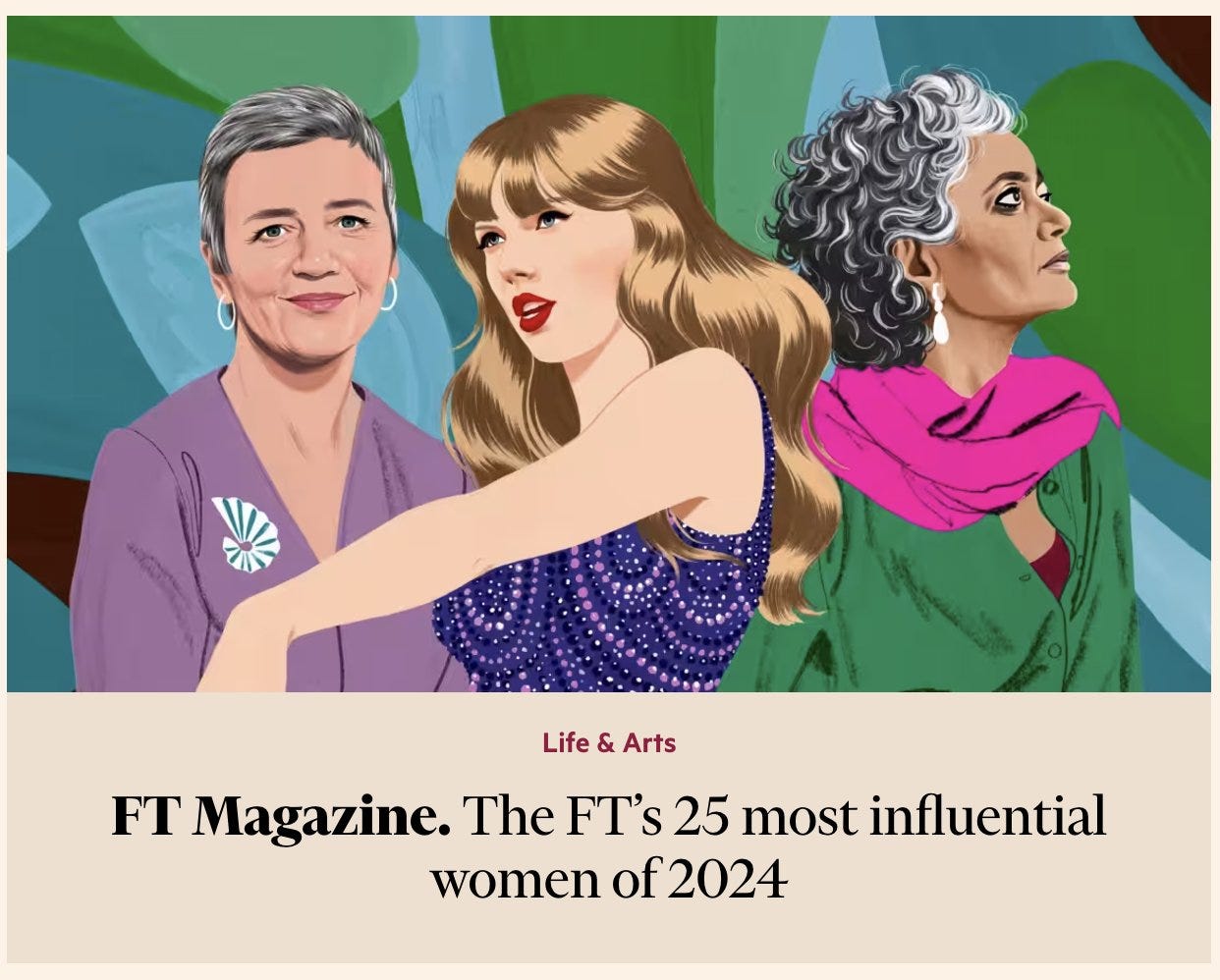



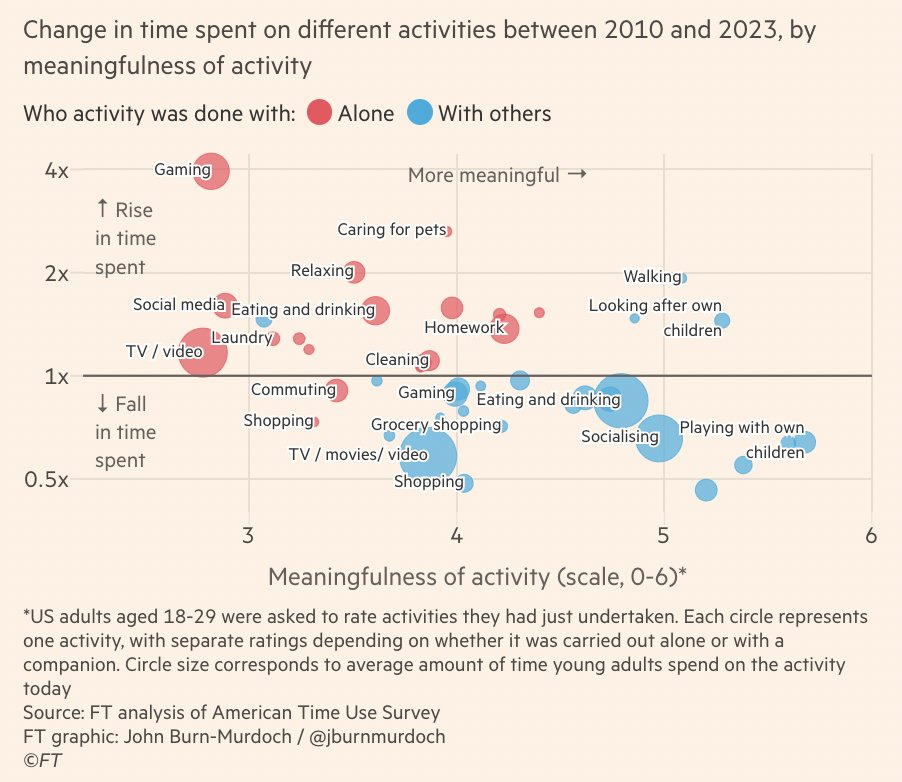
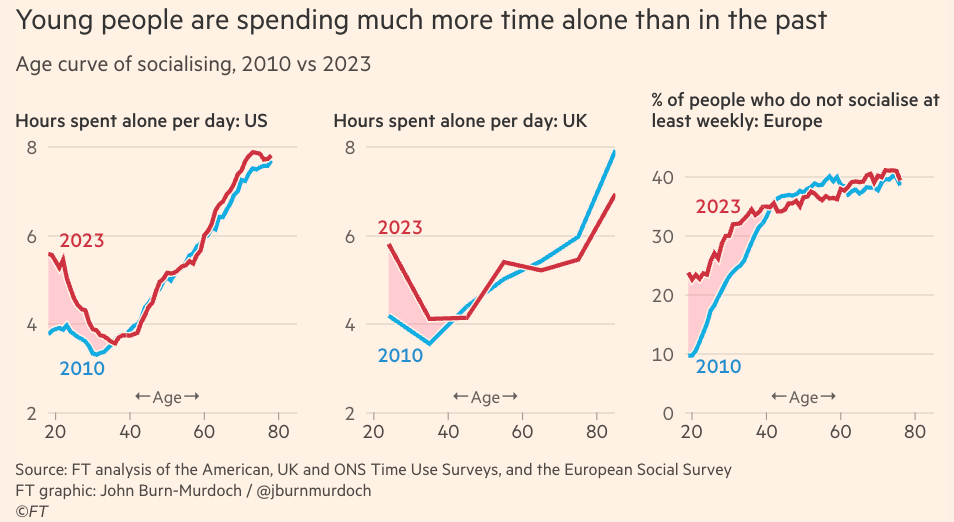

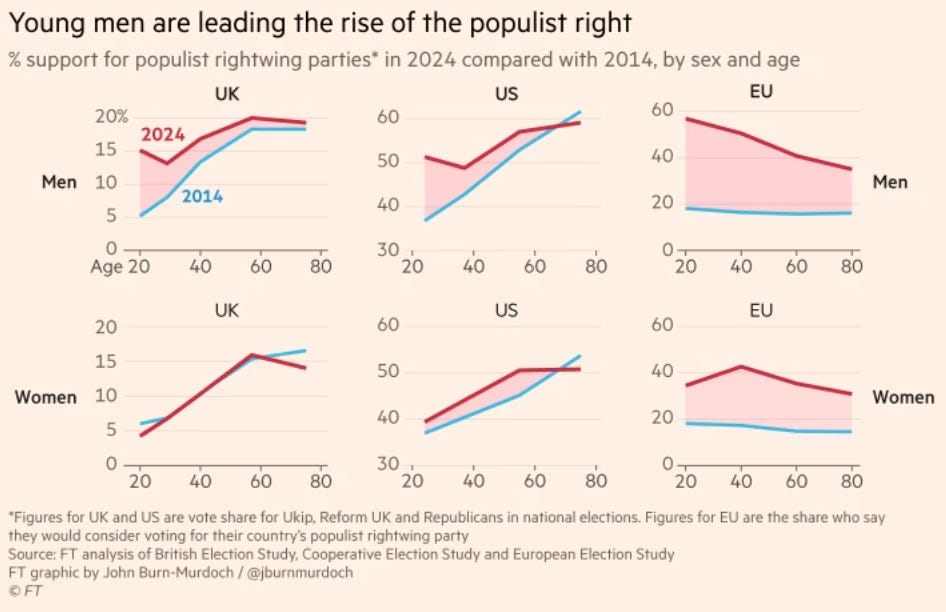

I was really enjoying this refreshing and unexpected piece until I got to this part, where it seemed to slide back into boring ole modern politics:
-- The evidence of Western young men's "sexist resentment" against women is their agreement with the statement "Advancing women's and girls' rights has gone too far because it threatens men's and boys' opportunities." To me, a Gen X woman, there is an ugly edge to the *wording* of this statement, but I think, given a poll, I would probably check "yes" here. It certainly wouldn't be a vote in "opposition to women's rights" as the y-axis suggests, but rather a concern that men and boys are really struggling. For example, is the reason women outnumber men in graduate programs by 1.6 to 1 because so much effort has been put into giving them "opportunities" from the zero sum game that is university admissions? That's what I would understand that poll question to mean.
--The tendency for young men to agree with the statement "Foreigners living in Germany should better adapt their lifestyle to that of Germans" is presented as evidence of their "xenophobia." It's interesting to see the sex and age differences in responses here, but is a positive answer to this question really xenophobia? (Noting that it appears that nearly everyone in Germany agrees with the statement, since 10% is the highest value!) Who, living in Germany and seeing Turkish families who have lived in Germany for five generations and still don't speak German, would disagree that they should "better adopt the German lifestyle"?
In an evenhanded and intriguing article, it was disappointing to see seemingly mundane political ideas presented as sexist resentment and xenophobia.
Filter bubbles are not a thing for right wingers as we are constantly bombarded with leftist messaging like this article.